Just weeks after its inception, the NGI Commons project has embarked upon its quest of bridging the top-down regulatory efforts together with the bottom-up open source initiatives, participating in a number of events on open source which took place in Brussels in the first week of February.
The events focused on open source and its intersection with policy, regulation, and digital innovation. They brought together a diverse group of stakeholders from the public sector, industry, and the open source community. The discussions underscored the evolving role of open source in driving technological advancement, ensuring digital autonomy, seizing the economic opportunity, and navigating the complex landscape of policy development.
Below, we summarise the key takeaways relevant for NGI Commons.
Workshop on Open Source Key Areas for Digital autonomy
The NGI Commons consortium partners actively participated in the Workshop on Open Source Key Areas for Digital Autonomy (the recording of the event is available here), jointly organised by three Directorates-General of the European Commission (Connect, DIGIT, and GROW). “I was heartened by Pearse O’Donohue’s (Director of Future Networks at DG Connect) opening speech, reaffirming the European Commission’s dedication to fostering open source initiatives for ensuring Europe’s technological sovereignty”, said Monique Calisti, Director of the NGI Outreach Office.
The Next Generation Internet (NGI) initiative was highlighted as a success story, showcasing how Europe has nurtured a vibrant community of innovators, with over 1,000 projects funded via cascade funding, focusing on open source, open data, and open hardware solutions.
Discussions during the workshop centred on open source in four key areas.
- The first scrutinised session was on cybersecurity and trustworthiness of ICT systems, revealing criticisms directed towards the Cybersecurity Act #CRA and its formulation process. It was discussed how the poor engagement of open source communities and cybersecurity experts during the initial drafting stages of the regulation led to sub-optimal outcomes and legal uncertainties, despite unanimous acknowledgement of the Act’s importance.
- The second session delved into the transformation of automotive design towards connected, carbon-neutral, and customer-centric transport with the Software-Defined Vehicle (SDV). Astor Nummelin Carlberg, Executive Director OpenForum Europe and partner in the NGI Commons Project, introduced the inaugural Eclipse SDV WG Vision Paper titled “Open Source Software in the Automotive Industry,” authored by him and Johan Linåker, RiSE.
- The third session showcased successful use cases of open source projects in European public services, highlighting specific challenges and opportunities for adoption. Increasing awareness and commitment to open source in major public organisations (e.g., Austrian National Bank, City of Paris, Pagopa.it, etc.) signal promising prospects for its competitive development.
- The final session focused on open source for data spaces, stressing its significance in empowering European Dataspaces for sustainable and digital sovereign development. Initiatives like the Interoperable Europe Semantic Interoperability Community (SEMIC) and projects, such as Simpl, aim to create interoperable data spaces, fostering Europe’s global competitiveness and data sovereignty through open, standardised, and secure architectures.
EU Open Source Policy Summit
On February 2, 2024, the 10th Open Source Policy Summit convened under the banner “Europe in the World of Open Source” hosted by the NGI Commons project partners, OpenForum Europe. The summit, which gathered policymakers, open source enterprises, community members, developers, foundations, and digital policy experts featured a thorough agenda, delving into several crucial themes.
- Adoption of open source in traditional industries: The automotive industry is increasingly embracing open source to facilitate the transition towards software-defined vehicle architectures. They are, however, facing a number of challenges linked to the culture and IP-inertia. The attempts to increase open source competence are meant to enable continuous feature updates, enhanced connectivity, and the integration of cloud services. There is a gradual shift towards a collaborative ecosystem that prioritises safety-compliant development processes and modular, flexible configurations.
- European open-source and digital sovereignty: A significant debate and often disagreement within the open source ecosystem is centred around distinguishing European open source contributions within the broader open source movement. One side of this debate emphasises the global nature of open source as a public good. The other points to the need of industrial policy and special treatment for European open source projects, vendors and products, while the exact definition of what European open source is remains unclear.
- Policy development and cyber resilience: The pace of regulatory developments, exemplified by the Cyber Resilience Act, presents both challenges and opportunities for the open source community. Effective communication and knowledge sharing between regulators and the open source ecosystem are essential to avoid stifling innovation. The concept of open source stewards introduced by the Act highlights the role of open-source foundations in cybersecurity and standardisation efforts.
- Open-source for Sustainable Development Goals (SDGs): The United Nations, in collaboration with the European Commission, has launched initiatives to leverage open source for achieving SDGs. Projects like the Open Source Ecosystem Enabler aim to build capacity within the public sector globally, highlighting the importance of open source in addressing global challenges.
- Open-source AI and regulatory landscape: The development of an Open Source AI Definition is a focal point for addressing regulatory complexities, such as those posed by the AI Act. An inclusive discussion with the open source community on this front is crucial for ensuring innovation within the AI domain.
- Funding and sustaining open source projects: The long-term sustainability of open source projects requires a concerted effort from both private and public sectors. Proposals for dedicated funding, like the suggested €10 billion EU Digital Sovereignty Fund (by Franscesca Bria), underline the need for upstream contributions and engagement from all stakeholders to maintain a robust, open, and sovereign technology stack. Nonetheless, here is an ongoing discussion about the structure of future funding: maintenance and innovation funding require completely different approaches.
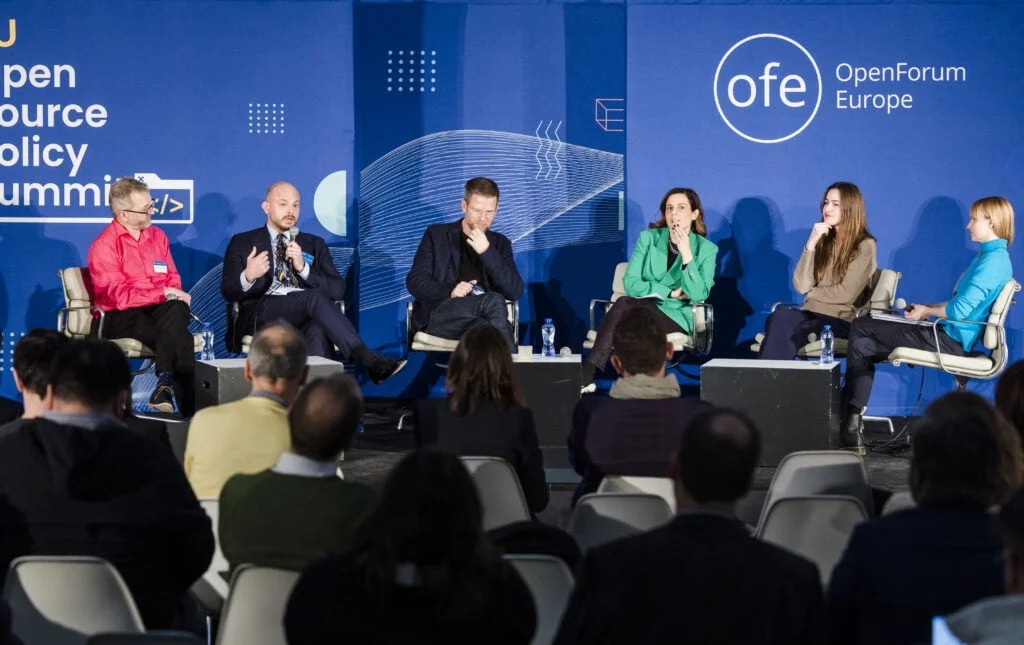
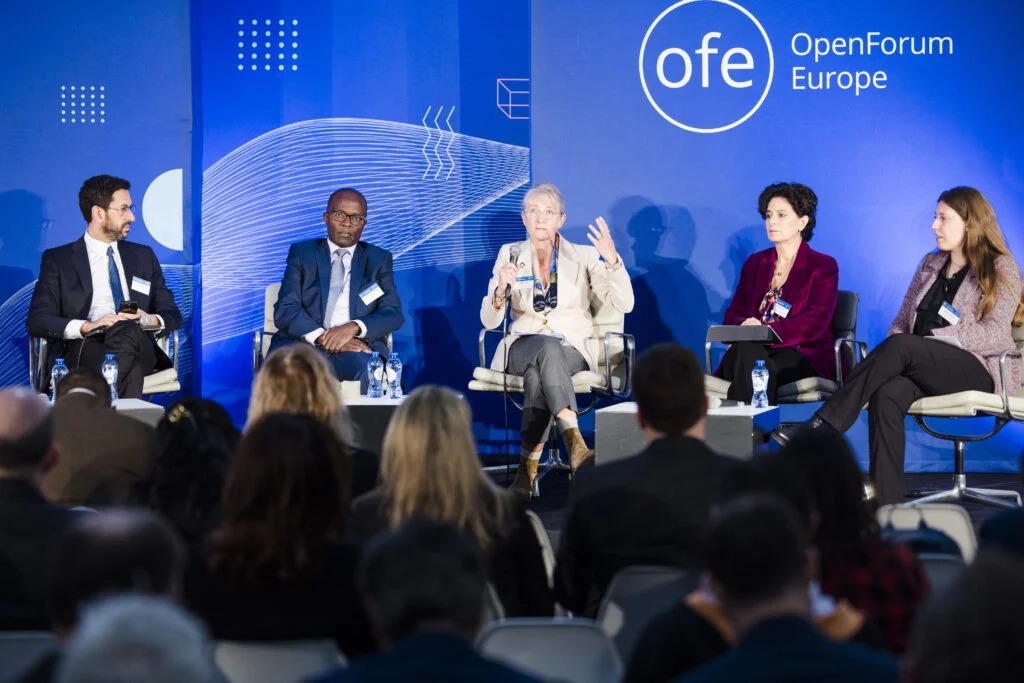
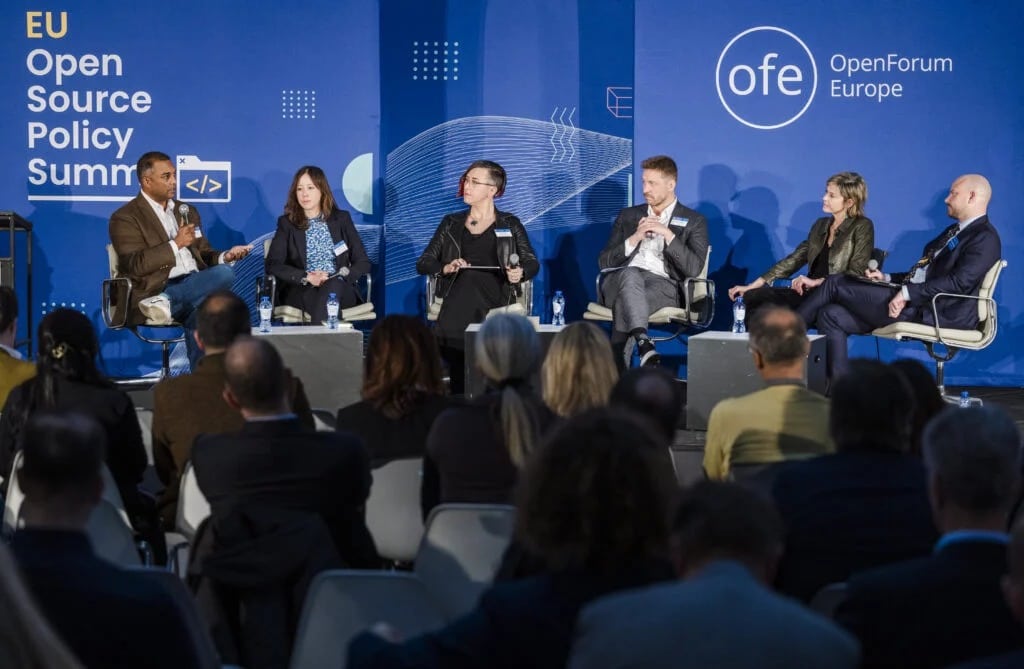
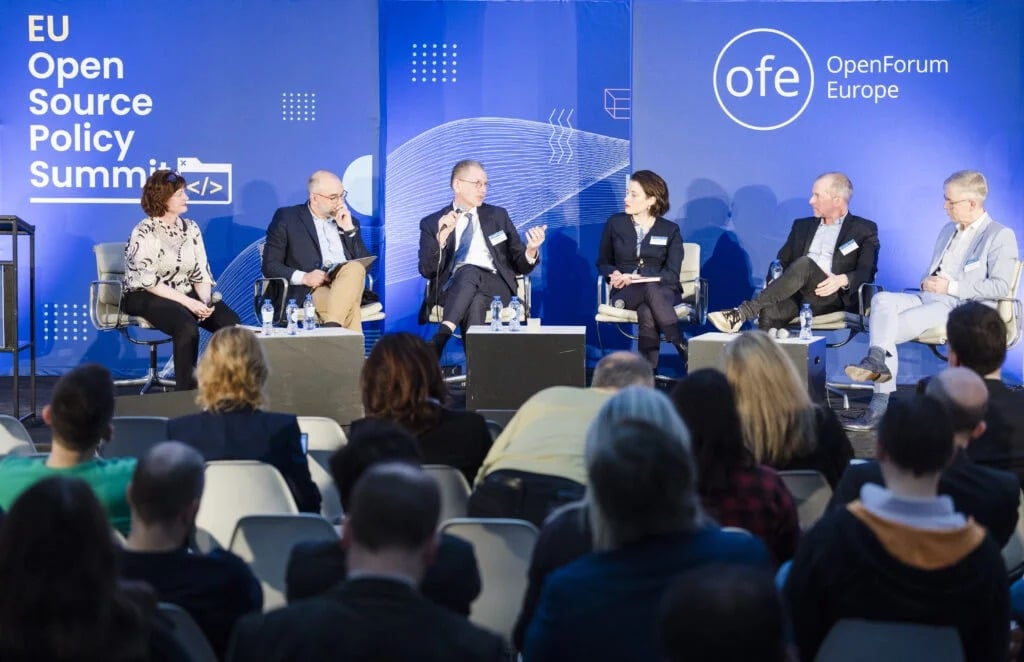
FOSDEM 2024
On Saturday, February 3, NGI Commons partners attended the NGI Zero MeetUp – informal chats with several open source activists and innovators that have been involved (and funded by the NGI), but also some encounters with new potential applicants that are new to EU funding programmes and would like to discover more.
On Sunday, February 4, the partners attended a session called The impact of the NGI Open Source projects on EU policy and values , with Jean-Luc Dorel from DG Connect and Clementine Valayer, Director at Gartner Consulting. This session focused on the substantial impact of NGI-funded open source projects on EU policies, digital rights, and values. After five years and funding over 1,000 open source projects, the NGI initiative presented its outcomes. Preliminary insights from Gartner and DG Connect’s study highlighted the NGI’s influence in crucial areas, such as EU policy shaping, standardisation efforts, and sustainability initiatives.
The NGI showcased statistics at FOSDEM 2024 and revealed impressive outcomes:
- 95% of its projects are open source, with more than half providing alternatives to proprietary solutions. This reflects a significant shift towards open source software in the tech ecosystem, indicating a strong movement towards transparency and user empowerment.
- In terms of project sustainability, 20% of NGI projects received additional funding, which demonstrates NGI’s commitment to nurturing long-term projects capable of evolving to self-sustenance.
- The NGI has successfully established 80 new legal structures, fostering a stable environment for open source projects to innovate and thrive.
- NGI’s engagement with the open source community is notable, with an estimated 80,000 contributors working on code, testing, or reporting bugs.
The NGI projects’ alignment with European digital rights and principles was also highlighted. The initiatives have had a profound impact on increasing safety, security, and empowerment of individuals, with a significant emphasis on putting people and their rights at the centre of the digital transformation. The NGI-fueled companies and projects presented at FOSDEM have adopted diverse and innovative business models, ensuring the economic viability of open source solutions.
Additionally, FOSDEM ‘24 was home to two unique devrooms: the ‘Public Code and Digital Public Goods’ devroom and the ‘Open Source in the European Legislative Landscape’ devroom. The former highlighted the many ways in which projects in Europe and beyond are developing themselves in the public interest for reuse as DPGs by governments and international organisations across the globe. The latter highlighted the rather unique momentum digital services regulation and legislation has gotten in the last year, and the many questions and debates therein with a workshop about the Interoperable Europe act, focusing on the involvement and opportunities of the open source communities to take part of the governance structure. Both demonstrated unique contributions of open-source to the digital commons and look to become regular features of FOSDEM in the years ahead.
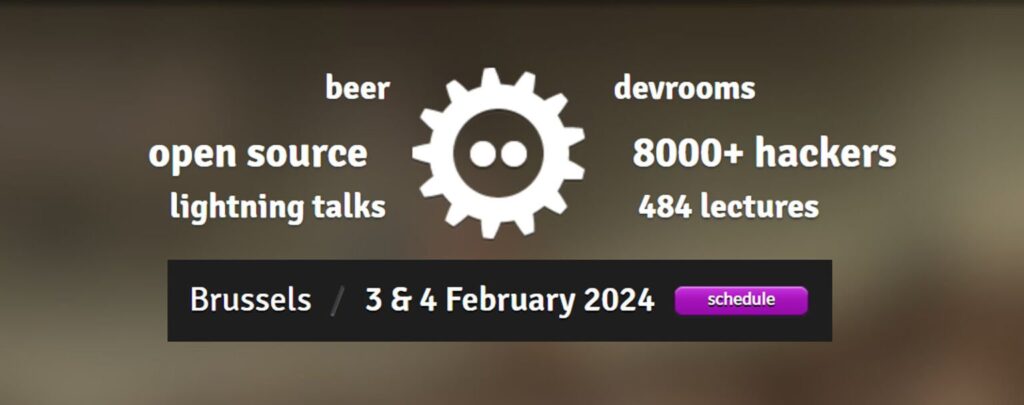
Summary
To summarise, NGI Commons, quickly delved into its mission of uniting top-down regulatory efforts with grassroots open source initiatives. At various open source events in Brussels, NGI Commons engaged stakeholders from diverse sectors, emphasising the evolving role of open-source in driving Europe’s technological sovereignty and navigating policy complexities.
The workshops underscored the critical role of open source in advancing Europe’s digital autonomy and competitiveness, emphasising the need for continued collaboration and innovation across various initiatives. Open source policy is in the “coming of age” phase, and it must be taken into account, yet a lot remains to be done, and in this respect, it is crucial that policymakers engage and listen to the open source community.
The NGI stands as a testament to success and can offer valuable support in this regard. We can certainly look forward to the future of open source, and the role that the recently launched NGI Commons project will play in guiding the pan-European policy landscape.
